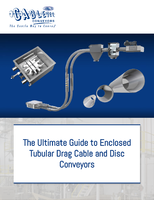National Labs Partner to help speed transition to energy efficiency.
Share:
Press Release Summary:
Through US Department of Energy's (DOE) Commercial Building Partnerships (CBP) initiative, commercial building owners and operators can tap expertise of national laboratories and private-sector technical experts to help save money and energy. In process of working through their projects with building researchers and technical experts, building owners/operators learn about replicable, cost-effective energy saving measures that can be applied across building portfolios.
Original Press Release:
National Labs Partner for Better Building Efficiency
Commercial buildings use a lot of energy, and building owners and operators foot the bill for that energy. It usually isn't hard to get owners and operators to improve energy efficiency, because the result is reduced operating costs, a healthier bottom line, and bragging rights as good corporate citizens. But energy systems in commercial buildings are complex, and it can be hard to know where to start without expert help.
This is where Commercial Building Partnerships (CBP) comes in. Through this new U.S. Department of Energy (DOE) initiative, commercial building owners and operators can tap the expertise of national laboratories and private-sector technical experts to help them save money and energy across their building portfolios. The Department of Energy's National Renewable Energy Laboratory (NREL), Lawrence Berkeley National Laboratory (LBNL) and Pacific Northwest National Laboratory (PNNL) are managing the process, which is funded through the American Recovery and Reinvestment Act.
Speeding the Transition to Energy Efficiency
To add a sense of urgency to this effort, not only do commercial buildings use a lot of energy, but they use a lot of energy for a long time. Large office buildings, for example, are still in use an average of 70 years after they're built and a third are still in use after 100 years.
By teaming commercial building owners and operators with laboratory researchers and private-sector technical experts, CBP accelerates the deployment of energy efficiency measures into the marketplace. In the process of working through their projects with the building researchers and technical experts, building owners and operators learn about replicable, cost effective energy saving measures that they can apply across their extensive building portfolios. Including private-sector technical experts further speeds the process, because they will share the information and experience gleaned from CBP with other clients.
To reach an even wider audience, publicly available case studies will describe each CBP new construction and retrofit project in detail. This documentation will make it straightforward for building owners and operators outside of the CBP initiative to benefit from the work.
Owners and operators of planned new and retrofit buildings must commit to substantial energy savings in the selected projects.
"CBP participants will create buildings with measured energy savings of at least 50 percent for new construction and 30 percent for existing buildings," said Paul Torcellini, group manager for commercial building research at NREL. "This initiative is unique because it demonstrates that it's cost-effective to make buildings more energy efficient, and that energy-efficient buildings are easy to replicate."
NREL researchers have long experience working with industry to improve energy efficiency. One company NREL works with is Whole Foods Market, a national food retailer.
Whole Foods is well known for its commitment to natural and organic foods. It comes as no surprise that the company also has a commitment to better buildings.
"We've had internal green building standards in place for years, but our work with NREL has helped us focus more specifically on reducing energy use in our stores," said Kathleen Loftus, Global Leader, Sustainable Engineering, Maintenance, and Engineering.
Grocery stores use significant amounts of energy for refrigeration, comfort cooling and heating, and lighting. Whole Foods has additional requirements because of its customer-centric business model and commitment to high quality, attractively displayed merchandise.
Each store works hard to deliver a positive shopping experience through everything from exceptional customer service to displaying "food as art." The challenge is preserving the look and feel of the stores while reducing the energy required to operate them.
"Working closely with local, regional and national Whole Foods staff as well as the company's private-sector consultants, we identified energy efficiency measures that reduce energy consumption without compromising the shopping experience," NREL Senior Engineer Michael Deru said.
Both Whole Foods and NREL benefit from this collaboration. NREL researchers learn the importance of considering business sensitivities and constraints as well as technical solutions. If the energy efficiency measures NREL recommends are consistent with the company's business goals, it greatly improves the probability of successful deployment in other stores.
As a result of their access to NREL technical expertise, Whole Foods has learned how to further reduce energy use and operating costs.
"NREL researchers have expertise in all areas of building energy end use, state of the art efficiency technologies, and renewable energy sources," Loftus said. "And they even understand supermarket construction and energy requirements and challenges, and that's no small feat!"
New Opportunities
The three participating DOE laboratories - NREL, LBNL, and PNNL - have released a call for projects for commercial building owners and operators and a request for proposals from technical experts. Retailers, commercial real estate companies, hospitals, educational institutions and other commercial building owners and operators now can take advantage of national laboratory technical expertise to improve the energy efficiency of their facilities. To submit a project for consideration, they can go to http://www.nrel.gov/cbp.
In addition, technical experts interested in helping commercial building owners and operators achieve significant energy savings in their facilities can respond to the new request for proposals at cbp-forum.lbl.gov




